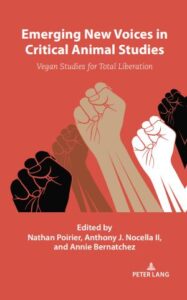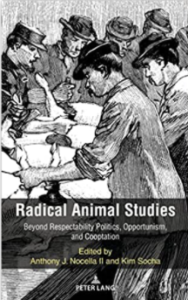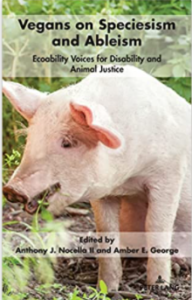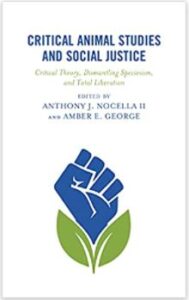Meredith H. Clark
Regulating Bodies: Explorations in Spaying & Neutering
By, Meredith H. Clark, Doctoral Student in Gender Studies at Arizona State University
Abstract
Socially constructed identity categories, meanings and differences become imprinted upon the bodies of nonhuman companion animals in the scope of human-animal relationships and interactions. Utilizing a mixed methods approach I will discuss the intersectionally-situated politics of spaying and neutering, focusing especially on artificial testicles called Neuticles that are inserted in place of a male animal’s actual testicles after he is “fixed.” Interrogating these narratives also reveals that the presence (or lack thereof) of a dog’s testicles has the ability to frame constructions of (e)masculinity and (hetero)sexuality in dogs and their human “masters.”
Such a consideration will allow me to examine how intersectionally situated narratives become imprinted upon nonhuman companion animals and vice versa, thus providing an example of the complex relationality that exists between species. For in the relationship(s) between nonhuman and human animals, the boundaries surrounding what it means to be(come) human are blurred, demonstrating, as Donna Haraway pointed out in When Species Meet, that our relationship’s with companion species “make a mess out of categories in the making of kin and kind. Queer messiness in mortal play, indeed” (2007: 19).
I will also explore various U.S. state laws that regulate the reproductive capabilities of nonhuman companion animal bodies. These breeding, spaying and neutering laws vary substantially by state and often reflect in rather interesting ways the various state’s demographics and pervasive ideologies. And while the impact and success of the laws vary depending upon a variety of factors, they all act as sites shaped by our current neoliberal biopolitical structure where one can explore numerous physical and affective consequences for human and nonhuman animal bodies.
This analysis will also demonstrate how humans imprint oftentimes-stereotypical, hierarchically-drenched meanings onto the animal others that they interact with in their daily lives. How and why those gendered, as well as racialized, classed and sexualized stereotypes develop has real, lived implications on the inter-reliant lives of humans and nonhuman animals. These explorations also demonstrate that the seemingly simple question “to neuter or not to neuter?” that appears on the surface to exist in the realm of the biological, of nature, quickly reveals itself as a space where Harawayan notions of natureculture materially and discursively manifest. In exploring the entangled situatedness of these categories while simultaneously working to destabilize the nature/culture and human/nonhuman dichotomies, as well as other problematic and limiting dualisms, one comes to see that there always exist more layers, further knots, that need to be disentangled.
Bio
Meredith H. Clark Bio: Meredith H. Clark is a doctoral student and teaching assistant in Gender Studies at Arizona State University (ASU). She is a member of the Institute for Humanities Research (IHR) animal studies reading group cluster and is currently scheduled to teach Human-Animal Studies in the Spring 2015 semester.





